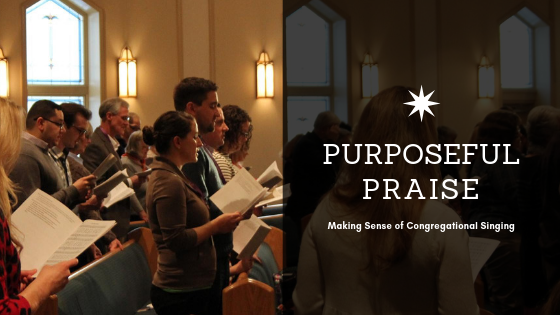Holy, Holy, Holy-Our January Doxology
When I was a child, if you had asked me to sing a doxology I would have used the following words: “Praise God from whom all blessings flow; praise him all creatures here below; praise him above, ye heavenly host; praise Father, Son, and Holy Ghost.” Thousands of English-speaking congregations around the world treasure this poem and sing it regularly. Yet the term doxology does not refer to these specific words; it simply means a brief expression of praise. The word is derived from the Greek doxa, meaning glory, and logos, meaning word or speaking.
Verse 4 from “Holy, Holy, Holy!” makes an excellent doxology. Note how the traditional words cited above urge God’s earthly and heavenly creatures to praise him: “praise him all creatures here below; praise him above, ye heavenly host.” When we sing “Holy, Holy, Holy!” we join the chorus of creaturely voices already singing God’s praise on earth and in heaven.
“Holy, holy, holy” echoes the refrain of the cherubim John saw in his vision of heaven, endlessly praising God from before his throne: “Holy, holy, holy, is the Lord God Almighty, who was and is and is to come!” (Rev. 4:1). Isaiah similarly saw a vision of seraphim before God’s throne crying “holy, holy, holy is the Lord of hosts; the whole earth is full of his glory!” (Is. 6:3). These passages lend even more of their imagery to verse 2 of the hymn, which not only pictures the cherubim and seraphim worshipping God, but also refers to “all the saints … casting down their golden crowns before the glassy sea”—the calm-as-crystal sea John describes in front of God’s throne (Rev. 4:6).
John’s “twenty-four elders” who “cast their crowns before the throne” (Rev. 4:10) represent all the saints—that is, the complete church past and present, two-times-twelve suggesting the twelve tribes of Israel and the twelve apostles. As Andy Styer explained in week 5 of his Revelation class, Revelation 4 reminds us that God is receiving the worship he is due right now, in heaven, by the whole gathered church and all the angels. So when we sing our doxology to God, this is the congregation we are joining.
And what do we join all God’s works in calling him? “Merciful and mighty,” and—most emphatically—“holy, holy, holy.” We tend to think of holiness as synonymous with righteousness, but it more properly refers to being set apart: a holy object is set apart from common use, and a holy person is set apart from common existence (including sin). To call God “holy” is to acknowledge his transcendence and his absolute superiority to his creation.
Finally, who is the God we are praising? Our God has graciously identified himself to us in his three persons, and so we take care to address our praise to the Trinity explicitly.
This blog was written by Corrie Schwab






